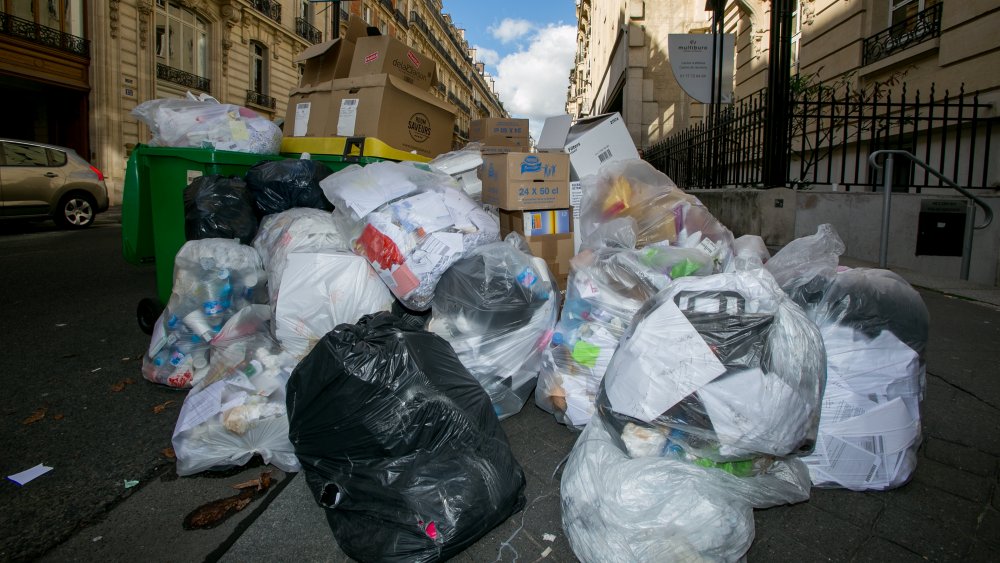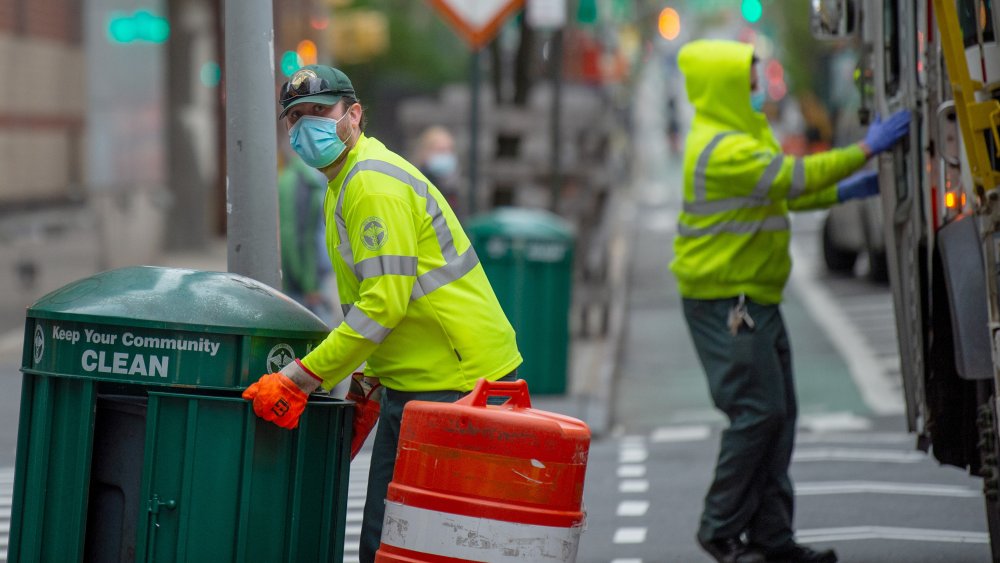Here's How Much Garbage Collectors Really Get Paid
Speaking in support of a sanitation worker strike, Martin Luther King Jr. told the striking workers, according to Stanford University, that, "One day our society will come to respect the sanitation worker if it is to survive, for the person who picks up our garbage, in the final analysis, is as significant as the physician, for if he doesn't do his job, diseases are rampant. All labor has dignity." It does, and sanitation work does so, especially. Consider how quickly mounds of rubbish would build without their daily effort. Or, better yet, look at the result of the recent garbage workers' strike in Paris, upon which the Local reported, or the results of the 2013 one in Madrid, as discussed by Reuters. Garbage workers are essential workers.
So, it seems only fitting for them to be well compensated. And they are.
As a 2016 report from CNN showed, it was feasible for garbage workers to make $100,000 dollars a year, which Tony Sankar did, or even $112,000, like Noel Molina. Admittedly, these men's wages hit in the higher range. The mathematically average garbage truck drivers only make $40,000 a year. However, that is still above what most high school graduates (and dropouts) make. Besides the general utility of such workers, their pay also arises from the specialized licensing needed to operate garbage trucks and the like.
Essential workers are essential workers
When the United States entered lockdown in 2020, garbage trucks still needed to navigate the streets and collect rubbish. However abused the designation of "essential worker" might be, garbage workers easily fit under this category, and deserve a safe environment to complete their tasks in. Social distancing doesn't cut it, though. For example, Chicago sanitation worker Sammy Dattulo told PBS about the bacteria orgy that is sanitation work: "I am so vulnerable to it, because you got water in the hopper. You got — there's human feces in there sometimes, diapers." Obviously, collecting garbage has a baseline level of dirt attached to it, but that combined with the omnipresent COVID-19 risk means that habits need to change, for their health and safely.
Some cities have, at least, announced initiatives to address such concerns. iHeartRadio reported on how in the Niagara Region in Ontario, the local government has attempted to put in stricter guidelines for how citizens could dispose of their rubbish, such as ensuring that everything in the bin must be bagged. It's a start, but it's also the least people could do for those who have to deal with their trash after they throw it out.

